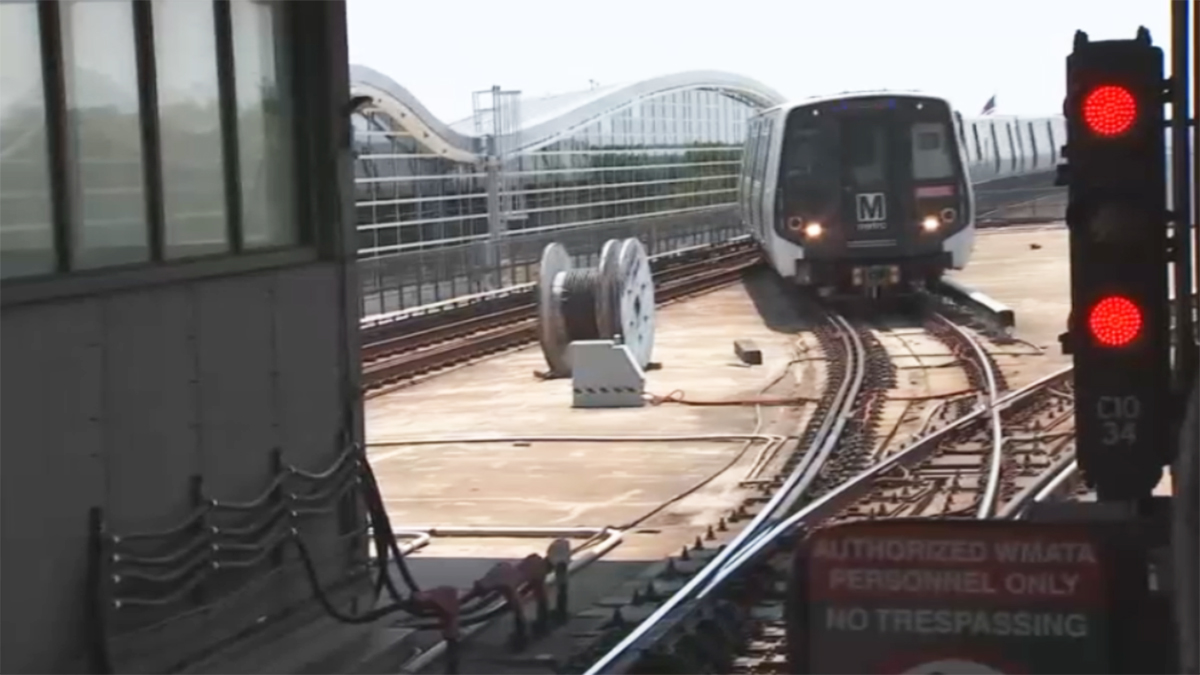It might be the biggest unwritten rule of Metro – when you're on the escalators, you stand to the right, and walk to the left. It's a message we holler at tourists and make memes about.
But a professor from the University of Maryland just released some research that suggests "stand right, walk left" isn't actually always the best idea.
If you're hesitant to try it – because you know what would happen to you if you did – here's the reasoning from UMD's Michael Fu.
"The stand right, walk left – what happens is usually there's a lot more standers than walkers," Fu explained. "So then the right side kind of gets congested, and the left side is underutilized."
We've got the news you need to know to start your day. Sign up for the First & 4Most morning newsletter — delivered to your inbox daily. >Sign up here.
Fu has spent the past year studying the system... left and right (sorry, not sorry).
He says his theory of doing away with stand right, walk left only applies during the busiest times in the system, like rush hours. That's when Fu says Metro is losing capacity on the left.
"When you have a very congested time, like during rush hour, you should actually have everybody stand on the escalators," Fu said. "And the reason is everyone gets on the escalators sooner and then you clear the platform faster."
Even better would be a hybrid version, where people walk a bit on the left to find their place to stand on the right. That way everybody fits perfectly on the escalator.
From a logistical, academic standpoint, it might make sense. But convincing Metro riders is another matter entirely.
Many riders don't see the professor's theory working when people are racing to get to work.
"A lot of people don't have patience," said Dawn Nutall, one of those riders. "So you stand, everybody gets on or whatever, a lot of people will be like 'I'm in a rush! I'm in a rush.' Even in the morning, the train is completely packed and people are trying to squeeze into the train because they don't want to wait 2-4 minutes for the next train."
It's a tough habit to break.
"That's the way we drive cars on the road, right?" said Milton, another Metro rider. "You drive on the right, you pass on the left."
Just know, if you decide to test Fu's theory out: You're probably going to need to explain your reasons to the riders behind you.
Fu hasn't yet shared his findings with Metro, but said he was interested in the idea.
As of this writing, Metro doesn't have any kind of official policy on how to ride the escalators. It's more of a gentle guidance, and it follows the usually-unspoken rule: Stand on the right, walk on the left.
A few years ago, then-Metro-General-Manager Paul Wiedefeld made some headlines when he suggested that the escalators should only be for standing. His claim was that walking on the escalators could damage them.
However, as the intervening years have shown, people are most likely to continue to stand right, and walk left.
Besides – if everybody stands on both sides of the escalator, then how will locals be able to spot tourists?




